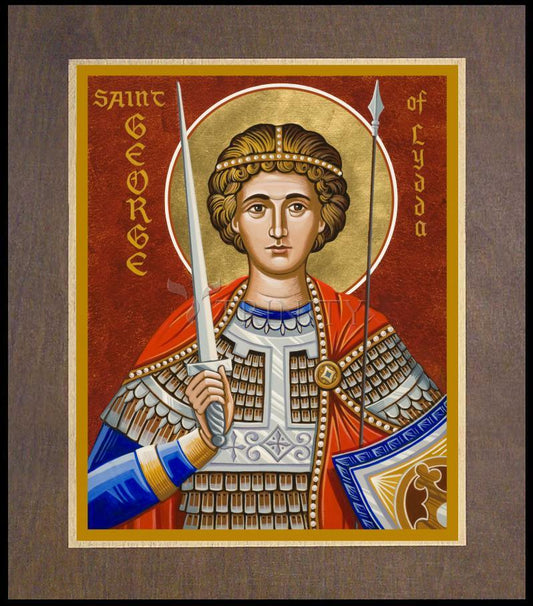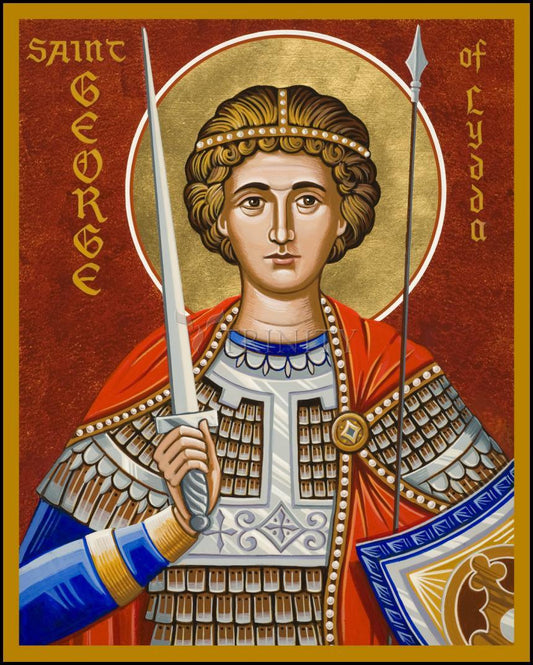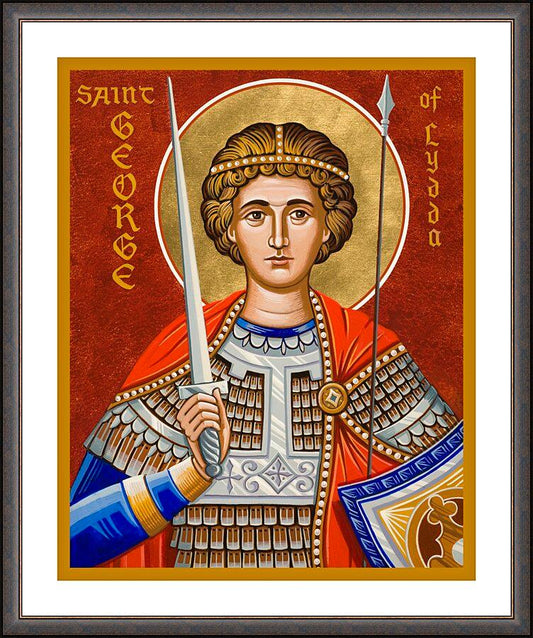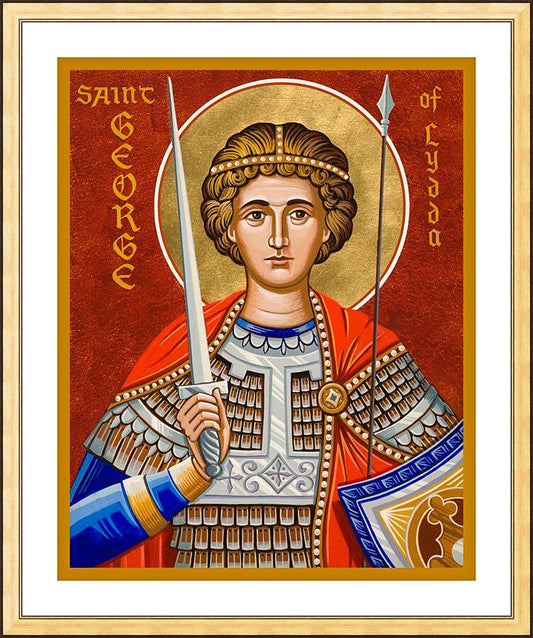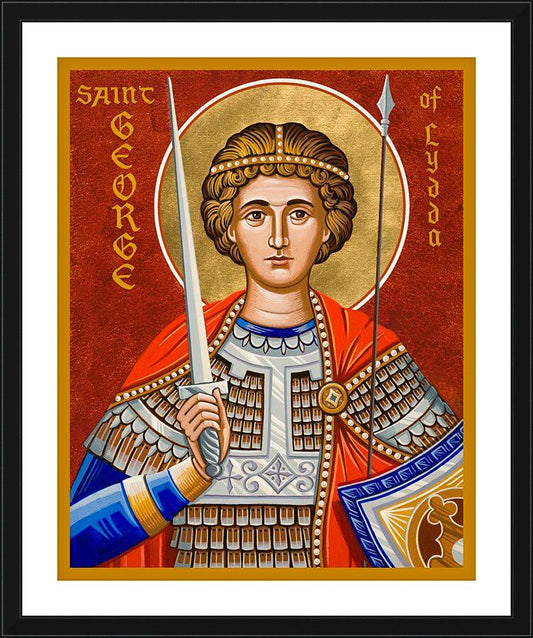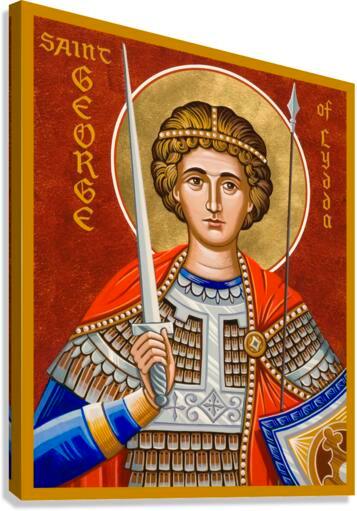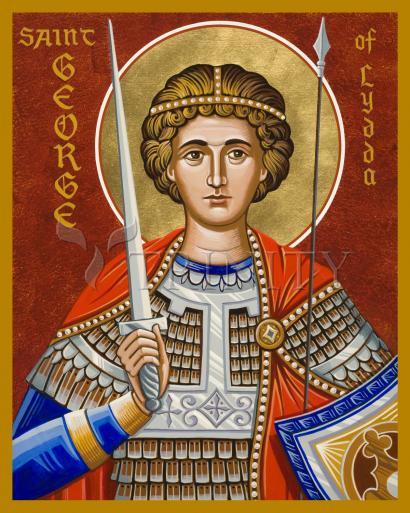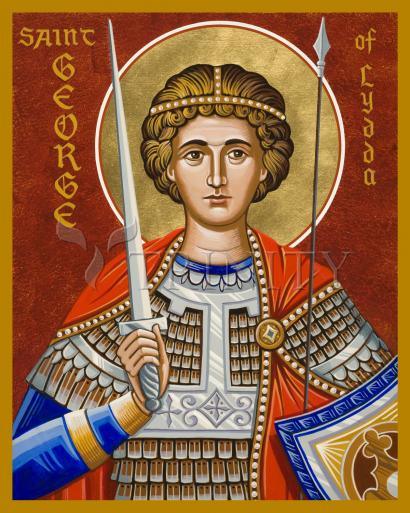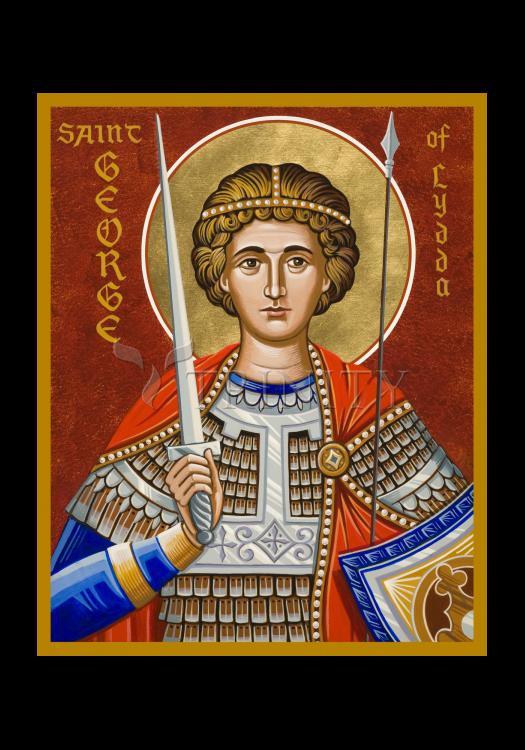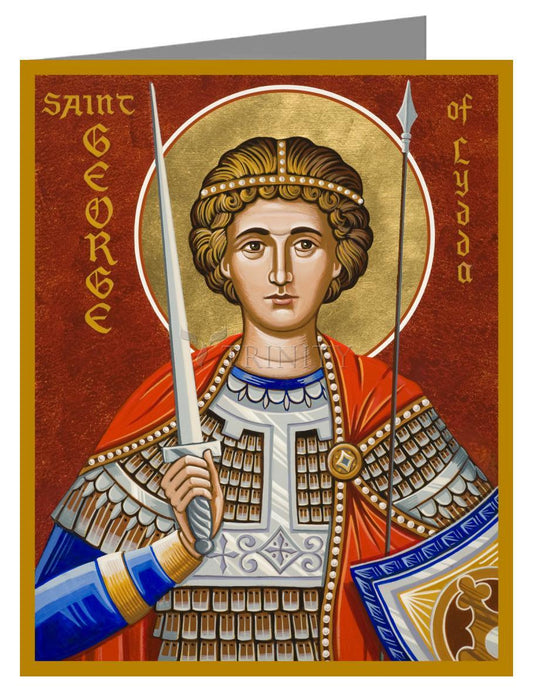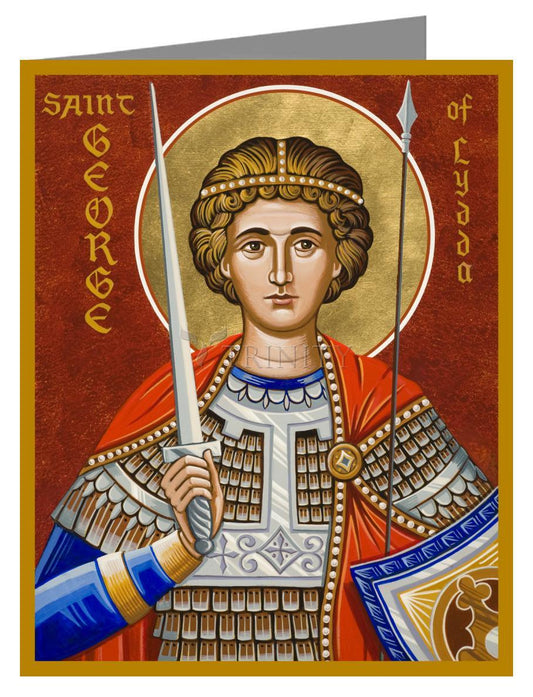It is uncertain when Saint George was born and historians continue to debate to this day. However, his death date is estimated to be April 23 303 A.D.
The first piece of evidence of George's existence appeared within the works of the Bollandists Daniel Papebroch, Jean Bolland, and Godfrey Henschen's Bibliotheca Hagiographica Graeca. George was one of several names listed in the historical text, and Pope Gelasius claimed George was one of the saints "whose names are justly reverenced among men, but whose actions are known only to God."
George was born to a Gerontios and Polychronia, a Roman officer and a Greek native of Lydda. Both were Christians from noble families of the Anici and George, Georgios in the original Greek, was raised to follow their faith.
When George was old enough, he was welcomed into Diocletian's army. by his late 20's, George became a Tribunus and served as an imperial guard for the Emperor at Nicomedia.
On February 24, 303 A.D., Diocletian, who hated Christians, announced that every Christian the army passed would be arrested and every other soldier should offer a sacrifice to the Roman gods.
George refused to abide by the order and told Diocletian, who was angry but greatly valued his friendship with George's father.



